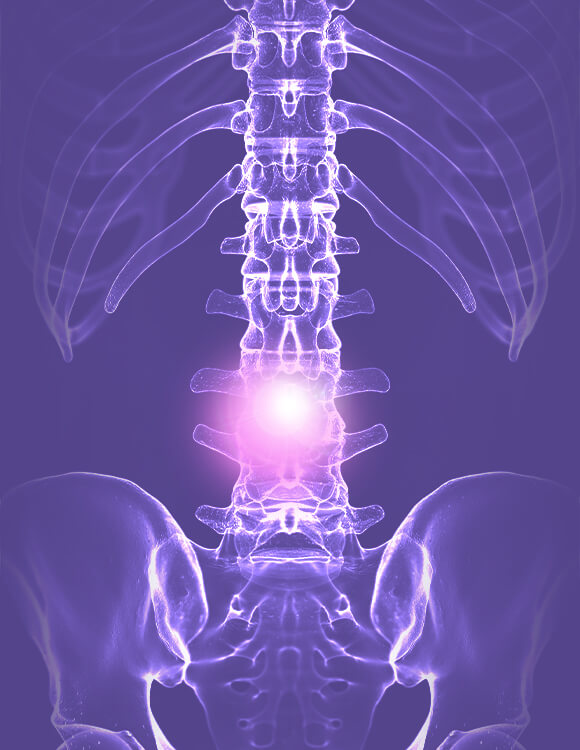
Northwestern Medicine Chordoma Center
To make an appointment at the Lou and Jean Malnati Brain Tumor Institute at Northwestern Memorial Hospital, call us 24/7 at 312.695.4360 or fill out a form .
Among the World's Leading Experts in the Diagnosis and Treatment of Chordoma
Chordomas are rare tumors that occur in the bones of the skull base and spine. They are malignant, potentially fatal tumors that tend to grow slowly and spread to other parts of the body if left untreated. Learn more about chordoma.
Navigating a medical system can be particularly daunting for patients seeking physicians experienced in treating chordomas. At the Northwestern Medicine Chordoma Center, part of the Lou and Jean Malnati Brain Tumor Institute of Robert H. Lurie Comprehensive Cancer Center of Northwestern University at Northwestern Memorial Hospital, we provide advanced treatment options for patients from around the world who have chordomas. Our patients are cared for by a team of experts, including neurosurgeons, orthopaedic surgeons, radiation oncologists, medical oncologists, reconstructive/plastic surgeons, oncology social workers and rehabilitation specialists.
Meet The Team

Our physicians are internationally recognized for their expertise in diagnosing and treating chordomas. We understand the importance of seamless, coordinated care for patients facing this complex disease.
Why Choose Northwestern Medicine
Surgical expertise
While many surgeons may only perform one chordoma surgery in their lifetime, our chordoma surgeon performs dozens of these surgeries each year. Jean-Paul Wolinsky, MD, is nationally recognized in his excellence in chordoma removal.
Choosing the best tumor surgeon is the most important decision you can make when facing a chordoma because it is one of the few tumors that can “seed” its cells to surrounding tissues. If the tumor happens to be ruptured during surgery, tumor cells can spill into surrounding areas and grow uncontrolled. The first surgery is your best chance at a cure.
The first proton center in Illinois
Your care team at Northwestern Medicine Chordoma Center works closely with specialists at Northwestern Medicine Proton Center, one of the few proton therapy centers in the Midwest and the first one in Illinois.
In treating tumors near the spine, proton therapy uses highly targeted treatment to precisely deliver the radiation dose to the tumor. This level of precision concentrates energy on destroying the tumor while limiting damage to surrounding healthy tissue.
Excellence in post-operative care
Northwestern Medicine Chordoma Center offers comprehensive post-operative care services, including physical and occupational therapy, through Northwestern Medicine Marianjoy Rehabilitation Hospital and the Shirley Ryan AbilityLab, formerly known as Rehabilitation Institute of Chicago (RIC). Your rehabilitation team will work closely with your medical and surgical team to help ensure the best recovery possible.
Pioneering New Treatments
Northwestern Medicine physicians are working to develop new treatments for chordoma, including use of 3-D printing for spine reconstruction and other new technologies for the removal of spinal tumors. There are also new chemotherapeutic options for patients through clinical trials, as well as the use of radiation therapy in the form of proton beam, the newest type of stereotactic radiosurgery, available at only a few research centers in the country.

 A story of how collaborative medicine saved a man's life against all odds.
A story of how collaborative medicine saved a man's life against all odds.